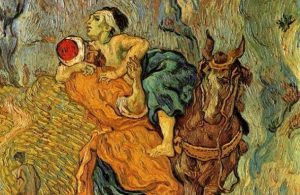Preaching with Humility
This homily was offered on July 7 at Holy Angels Church in Bainbridge, Ohio.
The Holy Spirit as Fire
This homily was given on 9 June 2019 at Holy Angels Church, Bainbridge, Ohio.
Loving Your Enemy
When someone hates you, you have two choices: you can hate them back or you can refuse to hate.
God Is Not Kidding
The Bible insists that God’s call is primary. God’s call is more important than our qualifications.
A Teenager in the Holy Family
What holds a family together is love and respect, especially in the teenage years.
The World God Sees
In Christ’s kingdom this world will be transformed. It will be the world as God sees it.












